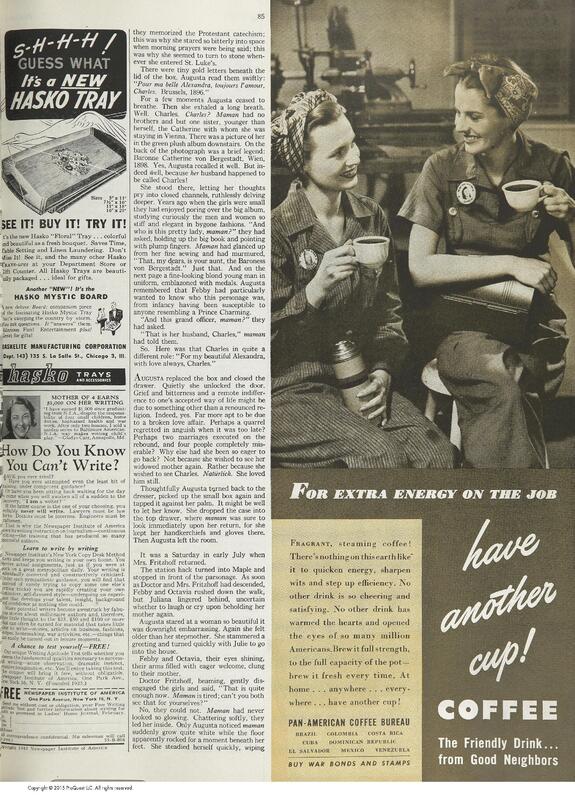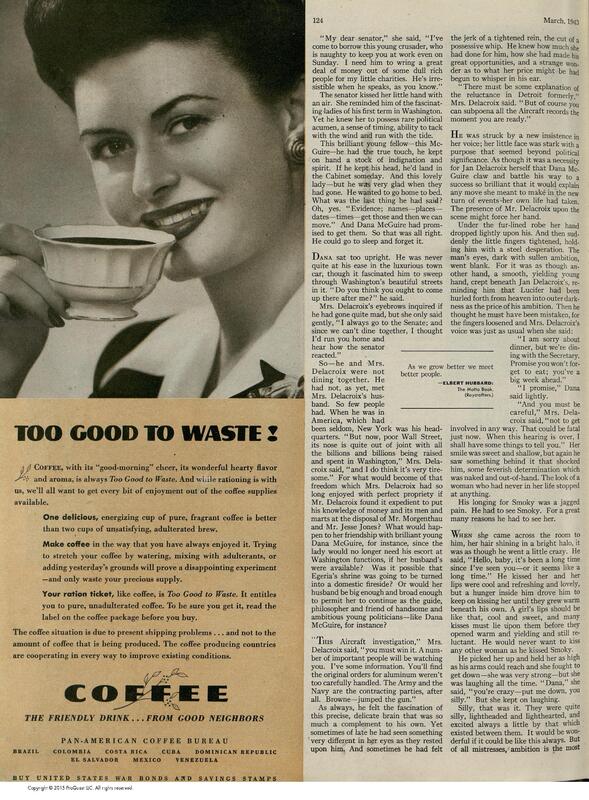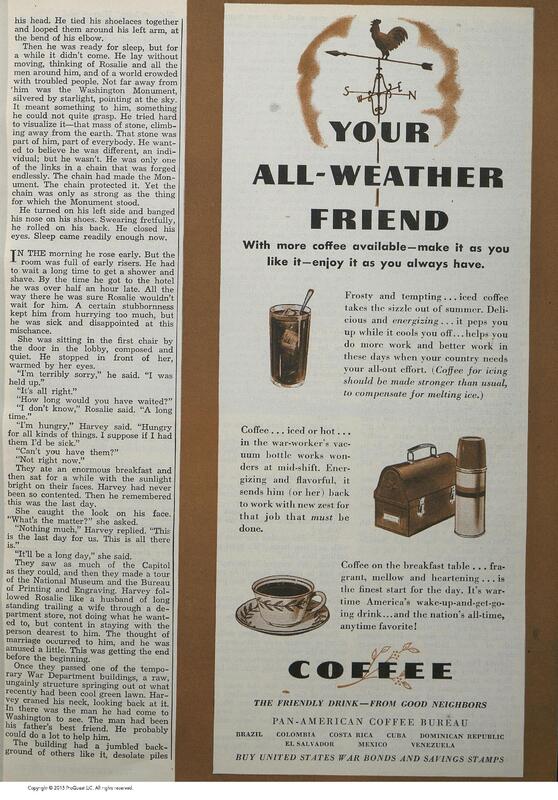During World War II: Women as Consumers (Pan American Ads)
During World War II, women’s roles changed. In this first advertisement on the left, we actually see a reflection of what many women did during this time, which was to enter the paid workforce. This is one of only a few exceptions in coffee advertisements that I came across that showed women as the paid laborer. This advertisement states “for extra energy on the job, have another cup!” The ad was created by Pan-American Coffee Bureau which was a group of a few coffee boards that worked to promote the consumption of coffee from regions in central and south America. The advertisement shows two women drinking coffee at what appears to be a factory. In this advertisement they are seen as paid laborers, a role that many women took on during World War II. Additionally, it is notable that the women are drinking coffee from a thermos, an indicator that coffee is something to bring with you to work.
This next advertisement on the right shows a woman smiling with her cup of coffee. This ad is again created by the Pan-American Coffee Bureau. In this ad, rationing is heavily emphasized. It states: “Your ration ticket, like coffee, is too good to waste.” Caroline Cornell found in her research that women in advertisements during World War II were more emphasized as important to homemaking and rationing policies than they were to the workforce, which contrasts what the famous Rosie the Riveter symbolized, a popular ad associated with the time period (2010, 31). She highlighted that “advertisements portrayed the housewife as critical to the success of rationing policies and simultaneously encouraged women to continue with their domestic duties by exalting their daily tasks as critical to the war’s success… [they] also included ways that women could cope with rationing and product scarcity” (Cornell 2010, 31). This finding is highlighted in this coffee advertisement. It highlights her use of her rationing ticket and tips on how to avoid making bad coffee. Interestingly, Tawnya Adkins Covert’s research found that despite messaging like this in advertisements, consumption actually increased (2003, 334). This leads me to believe that this messaging was not truly sincere in terms of their rationing effort, but they were sincere in using this effort in order to bolster and uphold domestication. Yet again, women’s consumption of coffee in an advertisement is crucial in not their support in the workforce, but in supporting their newfound war time responsibility of rationing.
This ad from the Pan-American Coffee Bureau is indicative of the temporary role that women play in their workforce entry. “Energizing and flavorful, it sends him (or her) back to work with new zest for that job that must be done.” Yet again, there is a thermos in the advertisement showing that coffee is a drink to bring with you to work, associating it with paid labor. It suggests that women may be working and needing an extra energy boost, but only as an afterthought, enforcing that women were only temporarily fulfilling this duty. Lewis and Neville’s research which found that overall, advertisements during World War II did not fully represent their changing position in society (1995). Women’s portrayals in advertisements may have hinted at their involvement in the workforce, but it was nowhere near significant enough to fully highlight their new role.



